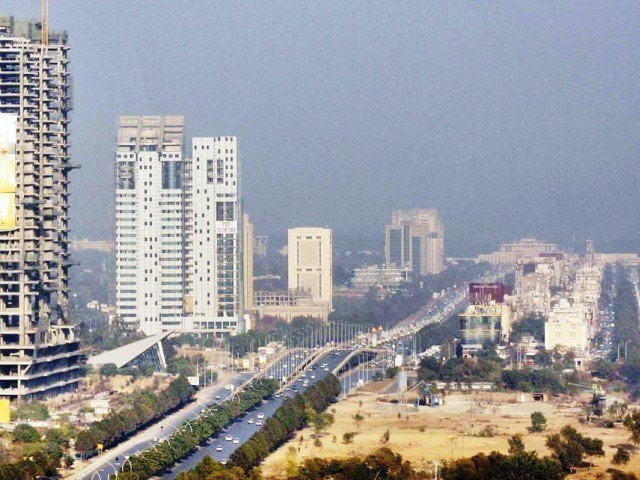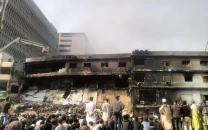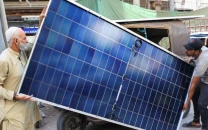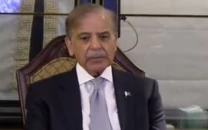Urbanisation in Pakistan
Cumulatively, cities in Pakistan generate 55% of the GDP

PHOTO:FILE
Cumulatively, cities in Pakistan generate 55% of the GDP. Moreover, Pakistan generates 95% of its federal tax revenue from 10 major cities. Karachi alone generates 12-15% of Pakistan’s GDP and contributes 55% of the federal tax revenue of the country. Seven out of 10 major cities in Pakistan have larger per capita incomes than the average. Poverty in cities is generally lower (i.e. urban multi-dimensional poverty is one-sixth of that of rural areas).
However, recent research suggests that the relationship between urbanisation and growth is not automatic. Urbanisation in many developing countries has occurred without growth, jobs and productivity. Unplanned and unmanaged urbanisation has rather resulted into urban slums, environmental degradation, poverty and inequality. Pakistan too, is confronted with a host of urban challenges.
Pakistan has a huge housing deficit of nearly 10 million units and growing. Urban population growth in the country has not been matched by growth in housing units or equitable access to land, resulting in housing shortages and the growth of slums.
The current approach to urban housing has resulted in many challenges. The urban sprawl has eaten up vast stretches of fertile agricultural lands. The government’s recent policy initiative to promote “vertical” housing may address the issue of sprawl.
However, given Pakistan’s vulnerability to earthquakes and other natural hazards, the government will have to put in place an effective regime for building codes and their compliance to off-set the potential negative consequences of vertical housing.
The building codes should also require proper insulation of houses to save energy. Adequate parking facilities in high rise buildings, for instance, is an issue which should also be kept in mind. Cities, which have shown incredible growth globally, are also the ones that have a strong governance architecture. An empowered city government that has the mandate and authority to generate its own revenue and manage the delivery of municipal and other services, has been instrumental in rapid economic growth and the social development of cities.
Pakistan is yet to develop well-structured and financially empowered city governments. In a study we conducted in Islamabad, we found that the city government could generate a revenue of Rs15.3 billion from car parking fees alone.
Cities are the hub of economic activities, but they are also the biggest sources of carbon emissions. Estimates suggest that cities generate 2.1 billion tonnes of solid waste annually.
The ‘Clean-and-Green Campaign’ and ‘10 Billion Tsunami’ initiated by the current government are becoming global best practices. While these initiatives are worth-praising, cities need institutional setups to cope with environmental challenges.
Pakistan is fast becoming a water scarce country. It needs water recycling which is another potential area for public-private partnership. Pollution is a major urban challenge.
The benefits that growing urbanisation brings can only be maximised through well-researched national policies and plans. Financially autonomous city governments, who have control over generating revenue and their use, are key to economic growth, provision of public services for all and public service innovation.
Published in The Express Tribune, June 5th, 2019.
Like Opinion & Editorial on Facebook, follow @ETOpEd on Twitter to receive all updates on all our daily pieces.









1733130350-0/Untitled-design-(76)1733130350-0-208x130.webp)




COMMENTS
Comments are moderated and generally will be posted if they are on-topic and not abusive.
For more information, please see our Comments FAQ